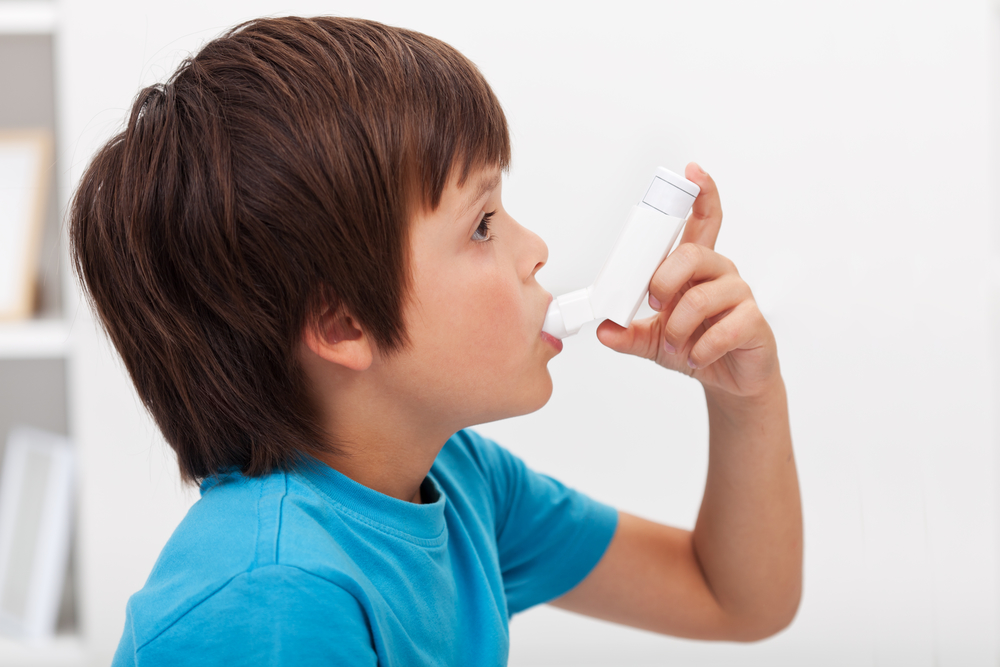6 Tips for Caring for a Child with Severe Asthma
 Raising a child is never easy—but it becomes even harder when your child is dealing with a lifelong medical condition, like asthma. However, caring for a child with severe asthma doesn’t have to be a trial. By arming yourself with knowledge and taking proper steps to prevent flare-ups, your child can have a completely normal life, and feel just like other children. Here are 6 tips to help you care for your child with severe asthma.
Raising a child is never easy—but it becomes even harder when your child is dealing with a lifelong medical condition, like asthma. However, caring for a child with severe asthma doesn’t have to be a trial. By arming yourself with knowledge and taking proper steps to prevent flare-ups, your child can have a completely normal life, and feel just like other children. Here are 6 tips to help you care for your child with severe asthma.
Have an Asthma Action Plan
Both you and your child should know exactly what to do to help control their asthma, as well as what to do in the event of a flare-up. Just as many families will review emergency plans and fire escape routes together, you and your child should formulate and review their asthma action plan on a regular basis. This plan should include:
- What medicines to take and when
- What their triggers are and how to avoid them
- How to recognize and manage a flare-up
- What to do between flare-ups
- Any other instructions from your child’s doctor
Be sure to make your child a part of this. They need to know how to manage their asthma just as much as you do.
Always Take Prescribed Medicines
Most kids with asthma will have both long-term control medicines and quick-relief medicines. Long-term control medicines are those that they take on a daily basis to help keep their airways from becoming irritated. Quick-relief medicines are those used to help open the airways during a flare-up. Most of these medicines require the use of an inhaler or nebulizer; these devices help the medicine to get to the lungs more quickly.
While it should go without saying that your child needs to take their medications as prescribed, it can be easy as a parent to let these things slide occasionally. Perhaps your schedules have been thrown off by family events or traveling, or maybe your child simply hates to take their medication. Whatever the reason, do all you can to ensure your child gets their medication as needed.
We also carry several varieties of pediatric nebulizers, which are designed to look like cute animals and fun characters. Such devices can help make your child more inclined to use their nebulizer and take their medication by making the process more fun for them.
Know and Avoid the Triggers
Many things can trigger a child’s asthma. The most common triggers are allergens like pollen or mold, changes in the weather, or viral infections like the common cold. It’s important that you are aware of your child’s triggers and do all you can to avoid them. This might include having your child tested for allergies, so you can avoid those allergens to prevent a flare-up.
For example, if your child seems to have an asthma flare-up every time they’re at your neighbor’s house, and your neighbor has a dog, pet dander may be one of your child’s triggers. Allergy tests can confirm this, but if you’re noticing a pattern like this, you should take steps to avoid exposing your child to dogs as much as possible.
Get a Yearly Flu Vaccine
As mentioned above, viral infections are a common trigger for kids with asthma. If an asthmatic child contracts the flu, they’re at an increased risk of flare-ups, and could even develop a more serious illness. So, if your child has asthma, you should ensure they get a flu vaccine every year to decrease their odds of contracting the illness.
Know the Signs of a Flare-Up
As mentioned in the section on asthma action plans, it’s important that both you and your child know the signs of a flare-up. Early signs can appear several hours before a flare-up, and may include changes in mood, breathing, or even appearance (such as a change in skin tone). An asthma diary can help you both to track and recognize these early warning signs, so that you can adjust medications and be prepared to deal with the flare-up as needed.
Prepare All Caregivers for a Flare-Up
You’re not the only one who cares for your child, and it’s important that other caregivers know what to do in the event of a flare-up, and have the tools necessary on hand to help your child. Your child’s teachers, coaches, babysitters, and other family members who provide regular care should always have quick-relief medication on hand when caring for your child, and know how to properly administer it in the event of a serious flare-up.
Having asthma does not need to be a hindrance on your child’s life. As long as both you and your child are knowledgeable, prepared, and taking the proper steps to address their asthma, your child can have a perfectly normal, active childhood. If you’re looking for pediatric nebulizers or other asthma care devices, visit Medical Xpress today.